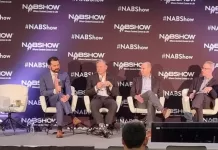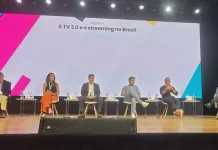Communications Minister Juarez Quadros announced the Brazilian Government?s policy for digital television Wednesday, September 11. The document was approved by President Fernando Henrique Cardoso and will be published in the Federal Register (Diário Oficial da União) Thursday, September 12. It will then automatically become law in the form of a presidential decree. According to the policy guidelines established in the document, Anatel will be responsible for negotiating commercial, industrial and technological benefits with the owner of the DTV standard chosen, alongside the ministries of communications, finance, and development, industry and trade. During the transition from analog to digital TV, broadcasters will be allowed to use an additional 6 MHz channel free of charge. This analog channel will be returned to the Union at the end of the transition period.
Timetable
The policy document doesn?t set dates or deadlines but according to Communications Minister Juarez Quadros Anatel will establish a new timetable based on the guidelines laid down in the document. Mr Quadros also said that besides choosing the DTV standard and participating in negotiations on counterpart benefits Anatel is responsible for developing a business model and rules for the transition period. The standard will be chosen next year and the transition period may be shorter than ten years.
Counterparts
The main economic counterpart defined by the document is that the chosen standard must ?stimulate the expansion of manufacturing in Brazil in such a way that most of the digital transmission equipment and receivers are produced locally.? Other points to be taken into consideration when choosing a standard are stimulating the implementation of a local semiconductor industry, promoting actions that foster the production of digital transmission equipment and receivers for export, and maintaining the production of analog equipment during the transition. According to Juarez Quadros, implementation of a semiconductor industry is not defined as a counterpart because not all owners of DTV standard technology are manufacturers of semiconductors.
Flexibility
As the Communications Ministry stated a couple of months ago at the annual conference of the association of television and telecoms engineers (SET), the Government is keen to ensure that DTV policy is flexible enough to allow broadcasters to choose the applications they want to adopt. The policy document now released specifies the following applications: simple standard DTV transmission, multiple programming standard transmission, high definition transmission, mobile reception, portable reception, multimedia, and interactivity. TV signal reception must remain free after digitization, but charges can be made for interactive applications. During the transition period, broadcasters must ensure that all programs are available in both analog and digital format.






